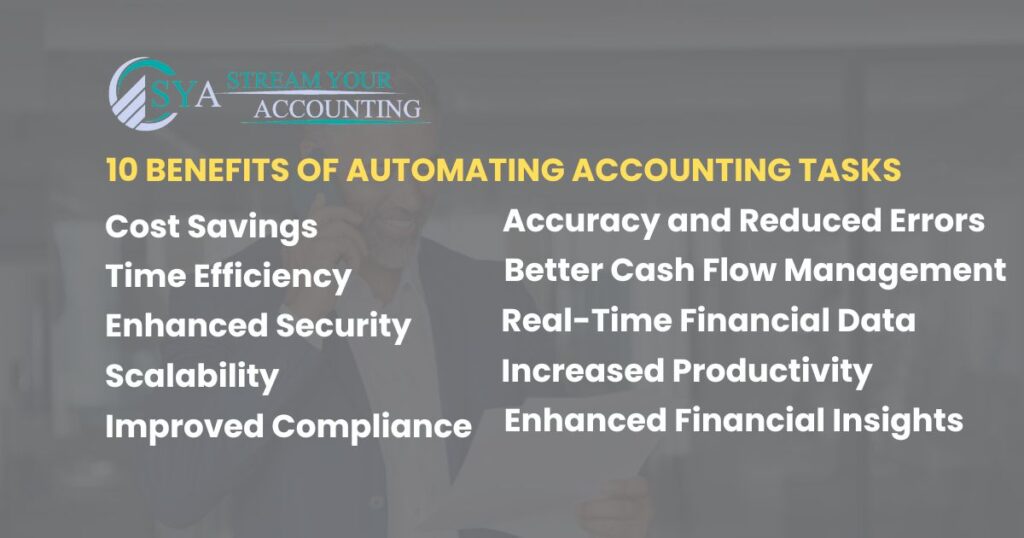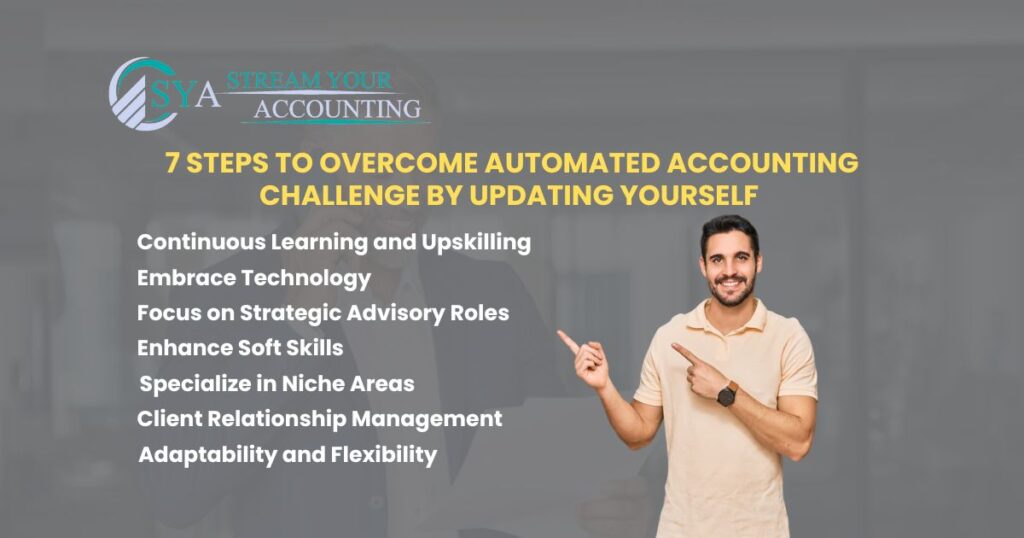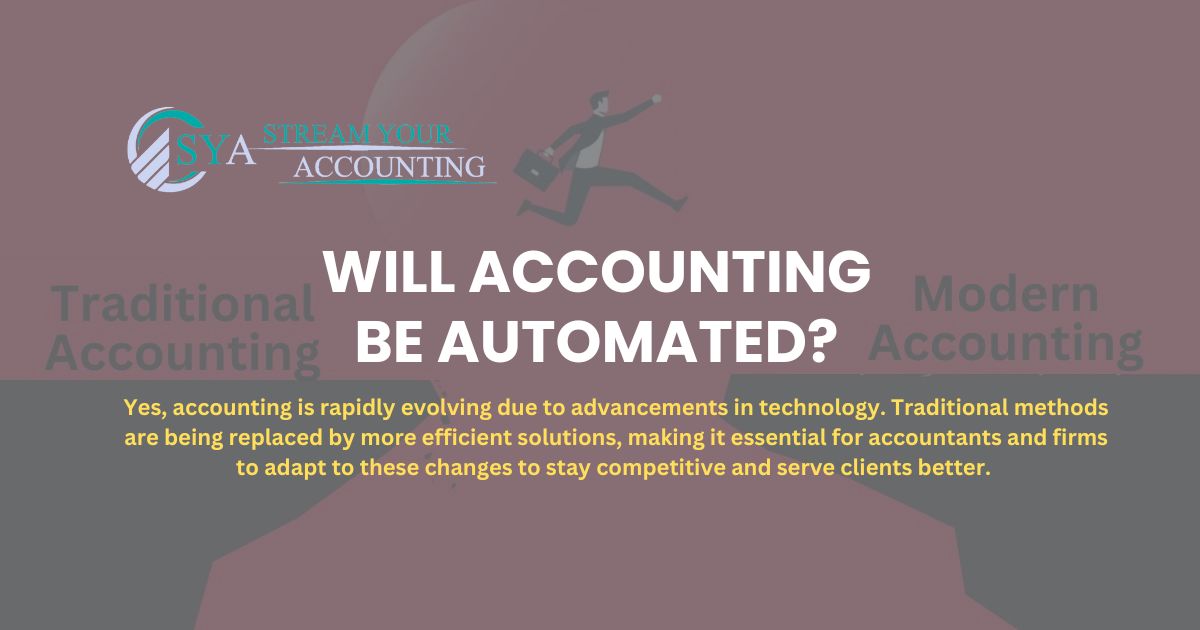Will Accounting be Automated? Quick Answer
Yes, accounting is rapidly evolving due to advancements in technology. Traditional methods are replacing more efficient solutions, such as robotics and accounting tools, revolutionizing the industry. With robots taking over accounting jobs and bookkeeping automation becoming more prevalent, accountants and firms must adapt to these changes to stay competitive and serve clients better.
However, despite these advancements, if you think it will be replaced completely with manpower, it will never happen in the near future.
Technology is not expected to replace manpower completely. Research (World Journal of Advanced Research and Reviews) indicates that while technology will impact manpower, it will not eliminate jobs. This guide will delve deeper into who is most affected by these technological advancements and who will benefit from managing accounting complexities.
A. Importance of Technological Advancements
Technological advancements have revolutionized the accounting industry, enabling faster and more accurate financial management. According to a report by Odyssey Resources, it is estimated that nearly 46% of banking roles, 28% of accounting positions, and 36% of finance bookkeeping jobs could be automated by 2027, highlighting the increasing automation trends across the financial sector (Odyssey Resources, 2024).
B. Role of Automation and AI (Acumen Research)
Automation and AI play increasingly pivotal roles in modern accounting practices. A study by Acumen Research and Consulting projects a Compound Annual Growth Rate (CAGR) of 48.9% for artificial intelligence in the accounting market from 2022 to 2030, underscoring the rapid adoption and growth of AI technologies in financial management (Acumen Research and Consulting, 2022).

AI-powered tools use advanced algorithms to analyze large volumes of data, revealing patterns and trends. The combination of automation and AI boosts how efficiently tasks are done and enhances the quality and reliability of financial statements (ResearchGate, 2023).
This research is done so that, from one guide, you will study all the researcher’s points of view on the question, “Will accounting be automated?”
Understanding Automation in Accounting
Automation in accounting involves utilizing technology to handle tasks that are traditionally performed manually by humans. Automated accounting includes anything from basic data entry to complex financial analysis. Automation tools and software simplify these tasks, making them quicker and more precise. For example, automation software can quickly scan and record this information with high precision instead of manually inputting data from receipts and invoices. Automation in accounting decreases the time and effort required for tasks, enabling accounting professionals to concentrate on more strategic responsibilities.
RECOMMENDED: If you want someone to handle your accounts, proceed here
Moreover, automation efficiently manages lengthy and difficult tasks with exceptional precision and swiftness. Tasks that once took hours or even days to complete can now be done in a fraction of the time. For instance, reconciling bank statements and preparing financial reports involved meticulous manual work and cross-checking. Automation handles these tasks automatically, ensuring consistent results and minimizing the chances of human errors. Automation of accounting improves efficiency and improves the overall quality of financial management, providing businesses with reliable data for better decision-making.
10 Benefits of Automating Accounting Tasks

1. Cost Savings
Automating accounting tasks reduces the need for manual labor, reducing salary and overhead costs. Businesses can allocate resources more efficiently, saving money in the long run.
2. Time Efficiency
Automation speeds up data entry, invoice processing, and bank reconciliation. Tasks that once required hours or days can now be finished in minutes, allowing more time for strategic activities.
3. Accuracy and Reduced Errors
Automated systems follow strict protocols, ensuring data entry and calculation accuracy. Automated accounting minimizes human errors and enhances the reliability of financial reports.
4. Real-Time Financial Data
Automation in accounting enables immediate access to current financial information. Businesses can produce instant reports and analytics, which help them make better decisions and plan strategically.
5. Improved Compliance
Automated accounting systems help ensure compliance with financial regulations by maintaining accurate and detailed records and reducing the risk of fines and legal issues.

6. Enhanced Security
Accounting automation improves data security by minimizing the chances of human errors and unauthorized access. Automated systems typically incorporate encryption and additional security measures to safeguard sensitive financial information.
7. Scalability
Automated accounting solutions can easily scale with a growing business. Automated systems can handle the additional workload as transaction volumes increase without significant manual intervention.
8. Better Cash Flow Management
Automation enhances cash flow management by delivering precise and timely updates on money owed and payments due. It assists businesses in effectively managing their cash flow and preventing liquidity problems.
9. Increased Productivity
By automating tasks that are repetitive and time-consuming, employees can concentrate on more valuable activities, which boosts productivity and enables staff to make more strategic contributions to the business.
10. Enhanced Financial Insights
The automation accounting process provides detailed financial insights through advanced analytics and reporting tools. Businesses can recognize patterns, monitor performance, and make well-informed financial choices, resulting in improved business results.
ALSO READ THIS: How to Make Business Grow By Outsourcing Bookkeeping
Key Technologies Transforming Accounting
A. Artificial Intelligence (AI)
Artificial Intelligence AI transforms accounting by automating data analysis and providing predictive insights. AI can swiftly process large amounts of data, recognize patterns, and produce valuable insights that assist accountants in making informed decisions. For instance, AI can forecast cash flow trends or spot potential financial risks before they become problematic. Notable AI tools in accounting software include QuickBooks’ Smart Reporting and Xero’s AI-driven cash flow forecasting. These tools are highly recommended for their user-friendly interfaces and advanced capabilities.
B. Robotic Process Automation (RPA)
Robotic Process Automation (RPA) in accounting represents a big change from traditional methods, bringing more efficiency and competitiveness. RPA acts like a virtual worker, copying human actions to perform business tasks, especially repetitive ones that involve heavy workloads (Boydaş Hazar & Toplu, 2023).
RPA can handle invoice processing, expense management, and data reconciliation tasks. By utilizing RPA, companies can greatly decrease the necessity for manual involvement, thereby lowering the chances of mistakes and accelerating processing durations. For instance, RPA can automatically extract information from invoices and enter it into accounting systems, streamlining the accounts payable process.
C. Cloud Computing
Cloud computing has transformed accounting by providing cloud-based systems with greater accessibility and scalability. Cloud accounting software allows businesses to conveniently access their financial data from any location with an internet connection, simplifying the management of finances from a distance. Additionally, cloud systems can scale with the growth of a business, accommodating more users and larger volumes of data as needed. Popular cloud accounting software includes QuickBooks Online, Xero, and FreshBooks, which offer features such as real-time financial reporting and collaboration tools.
D. Blockchain Technology
Blockchain technology holds promise for enhancing security and transparency in financial transactions within the accounting sector. Blockchain is a decentralized ledger system that records transactions across multiple computers securely and transparently. Its potential applications in accounting include improving audit trails and enhancing fraud prevention measures. For instance, blockchain can provide a secure and immutable record of financial transactions, reducing the risk of data tampering and ensuring accuracy in financial reporting. As blockchain matures, it may become integral to ensuring trust and reliability in accounting practices, particularly in auditing processes where transparency and authenticity are crucial.
ALSO READ THIS: What is The Importance of Bookkeeping For Startups?
Impact of Automation on Accounting Professionals
A. Changing Roles
Automation is reshaping the traditional roles of accounting professionals, moving them away from everyday tasks like data entry towards more strategic advisory roles. Instead of spending hours on manual data entry, accountants now rely on automated tools to handle routine tasks, allowing them to focus on analyzing financial statements and providing valuable insights to clients and businesses. This shift towards advisory roles underscores the importance of upskilling in technology for accountants. Those who adapt and learn to leverage automation tools effectively can enhance their value by offering strategic financial advice and decision-making support based on real-time data insights.
B. Job Market Trends
The rapid advancement of automation technologies influences the future outlook for accounting jobs. While automation makes tasks more efficient, it also opens up new opportunities for specialized roles within accounting. Accountants specializing in data analysis, AI-driven financial forecasting, or blockchain auditing will likely see increased demand for their expertise. These specialized positions demand a thorough grasp of accounting principles and cutting-edge technology, empowering professionals to navigate the changing accounting landscape confidently.
Here are some accounting and finance professions that are impacted by the automated accounting process.
1. Bookkeepers
Automated accounting tools lessen the requirement for manual tasks such as entering data and reconciling accounts, which bookkeepers and accountants have historically handled. However, their role evolves towards overseeing and interpreting automated processes.
2. Accounts Payable and Receivable Clerks
Accounting Automation simplifies invoice processing, reducing the manual effort required for managing payments and receivables.
3. Auditors
Automated audit tools can analyze large datasets more quickly and accurately than manual methods, changing how audits are conducted and focusing auditors on interpreting complex data.
4. Financial Analysts
Automation tools can automate financial analysis tasks such as variance analysis and forecasting, allowing analysts to focus more on interpreting results and providing strategic insights.
5. Tax Preparers
Automated tax preparation software simplifies tax calculations and compliance tasks, altering the role of tax preparers to focus on advising clients on tax strategies and regulations.

6. Management Accountants
Automation enables faster and more accurate reporting of financial data, shifting management accountants towards providing real-time insights for decision-making rather than data compilation.
7. Financial Managers
Automated reporting systems provide real-time financial data, enabling managers to make quicker decisions and focus on strategic financial planning.
8. Financial Advisors
Automation tools can assist financial advisors in providing personalized financial planning and investment advice by analyzing client data more efficiently.
9. Payroll Administrators
Automated payroll systems streamline payroll processing and compliance tasks, reducing the manual workload for payroll administrators.
10. IT and Support Roles
Implementing and maintaining automation systems requires IT support and specialists to manage software, data security, and integration with other systems.
ALSO READ THIS: What is the Biggest Advantage of Electronic Bookkeeping?
Will Automated Accounting Replace Accountants?
No, automated accounting will not replace accountants entirely. Instead, it enhances their capabilities by handling repetitive tasks quickly and accurately. Accountants can then focus more on strategic analysis and providing valuable insights to clients, improving overall service quality and efficiency.
7 Steps to Overcome Automated Accounting Challenge By Updating Yourself
To effectively navigate the impact of automation on accounting jobs and overcome its challenges, accounting professionals can take proactive steps:

Step 1. Continuous Learning and Upskilling
Ensure you invest in continuous education and training programs to keep up with the latest technological advancements and gain expertise in new automation tools.
Step 2. Embrace Technology
Embrace automation technologies rather than resisting them. Learn to leverage AI, RPA, blockchain, and cloud-based solutions to enhance efficiency and accuracy in accounting workflows.
Step 3. Focus on Strategic Advisory Roles
Shift focus from routine tasks to strategic advisory roles that require critical thinking, data analysis, and decision-making. Position yourself as a valuable advisor who interprets automated data insights for clients.
Step 4. Enhance Soft Skills
Develop strong interpersonal and communication skills to communicate complex financial insights and recommendations to clients and stakeholders.
Step 5. Specialize in Niche Areas
Explore specialized areas within accounting that are less likely to be automated, such as forensic accounting, tax advisory services, or financial planning for specific industries.
Step 6. Adaptability and Flexibility
Stay flexible and ready to adjust to technological advancements and shifts in industry trends. Be flexible in handling new tools and methodologies as they emerge.
Step 7. Client Relationship Management
Strengthen client relationships by offering personalized services beyond automated processes. Prioritize understanding what clients need and offering personalized solutions using automated insights.
By proactively adopting these strategies, accounting professionals can mitigate the potential adverse effects of automation and capitalize on the opportunities it presents to enhance their roles and deliver greater value to clients and organizations.
ALSO READ THIS: What are the Current Accounting Trends? 10 Trends to Pay Attention
Challenges and Considerations in Automated Accounting
As automation continues to reshape the accounting landscape, several challenges and considerations emerge that businesses and accounting professionals must address.
A. Integration Challenges
One of the main difficulties when implementing automation in accounting is integrating new technologies with current systems. Many businesses already have established accounting software and processes that may not seamlessly integrate with new automated tools, which can lead to issues such as data inconsistency, duplication of efforts, and disruptions in workflow.
To overcome these integration hurdles, businesses can employ several strategies
- Conducting a thorough assessment of current systems and processes helps identify areas where automation can be most beneficial.
- Selecting automation tools that offer compatibility and easy integration with existing software can minimize disruption.
- Ensuring employees receive sufficient training and support during the transition phase helps them smoothly adopt and use new technologies.
B. Security Concerns
With the advantages of automation also come notable security concerns, especially related to data breaches and cyber threats. Automated accounting systems frequently manage sensitive financial information, which makes them appealing targets for cybercriminals.
Implementing strong cybersecurity measures is crucial to mitigate these risks, which includes data encryption in transit and at rest, implementing access controls to limit who can view and modify sensitive information, and regularly updating software to patch vulnerabilities. Furthermore, regular security audits and training employees on cybersecurity best practices can strengthen defenses against potential threats.

The Future Landscape of Accounting Firms
The future of accounting firms is shaped by several key trends and technological advancements, paving the way for a transformed landscape.
A. Emerging Trends
Accounting firms increasingly embrace remote work and virtual CFO services. Remote work allows firms to tap into a global talent pool and offer flexible work arrangements, enhancing productivity and employee satisfaction. Virtual CFO services provide clients with access to strategic financial advice without needing full-time in-house CFOs, making high-level financial expertise more accessible and cost-effective.
B. Client Expectations
Automation is crucial in meeting real-time reporting and analytics demands. Clients now expect instant access to financial data and insights to make informed decisions promptly. Automation tools enable accounting firms to deliver timely and accurate reports, forecasts, and financial analyses, enhancing client satisfaction and trust.
C. Ethical Considerations
As automation becomes integral to accounting processes, ethical considerations regarding data privacy, security, and transparency come into play. Firms must adhere to ethical standards and regulatory requirements to protect client information and maintain trust in their services.
D. Case Studies and Examples
Leading accounting firms have successfully implemented automation to streamline operations and improve service delivery. Stream Your Accounting (SYA) exemplifies how automation can revolutionize accounting practices. SYA has significantly enhanced efficiency and client service by integrating advanced technologies.
SYA utilizes automation tools for tasks such as data entry and financial analysis, allowing their team to focus more on strategic advisory roles rather than mundane, repetitive tasks. This shift has improved the accuracy and speed of their financial reporting and enabled SYA to offer real-time insights and analytics to their clients.
Through adopting automated processes, SYA has observed reduced turnaround times for client deliverables and enhanced scalability to effectively manage a growing client base. Clients benefit from more accurate financial reporting, proactive financial advice, and improved decision-making support.
SYA’s successful implementation of automation underscores the transformative impact of technology on modern accounting firms. By leveraging automation tools, SYA continues to set industry standards for efficiency, client service, and innovation in accounting.
E. Benefits of Adopting Automated Processes:
The benefits of adopting automation include increased efficiency, reduced errors, and enhanced scalability. Automation allows firms to handle larger volumes of data and transactions while maintaining accuracy and compliance with regulatory standards. Clients benefit from faster turnaround times and comprehensive financial insights, driving business growth and client retention.
ALSO READ THIS: What Does a Personal Accountant Do?
Final Thoughts
In wrapping up, the future of accounting revolves around the question: “Will accounting be automated?” This shift towards automation means tasks are done faster and more accurately, allowing accountants to focus on strategic insights. Automation doesn’t replace accountants but enhances their abilities, improving client service and operational efficiency. Embracing these changes is essential for firms to stay competitive and meet client needs. Automation will continue to shape the future of accounting, driving innovation and efficiency throughout the industry. If you face complexities, contact Stream Your Accounting, a Xero Certified Advisor, for expert guidance and support.


